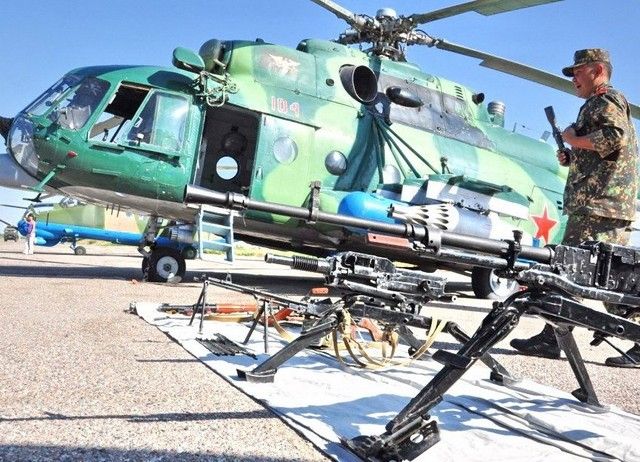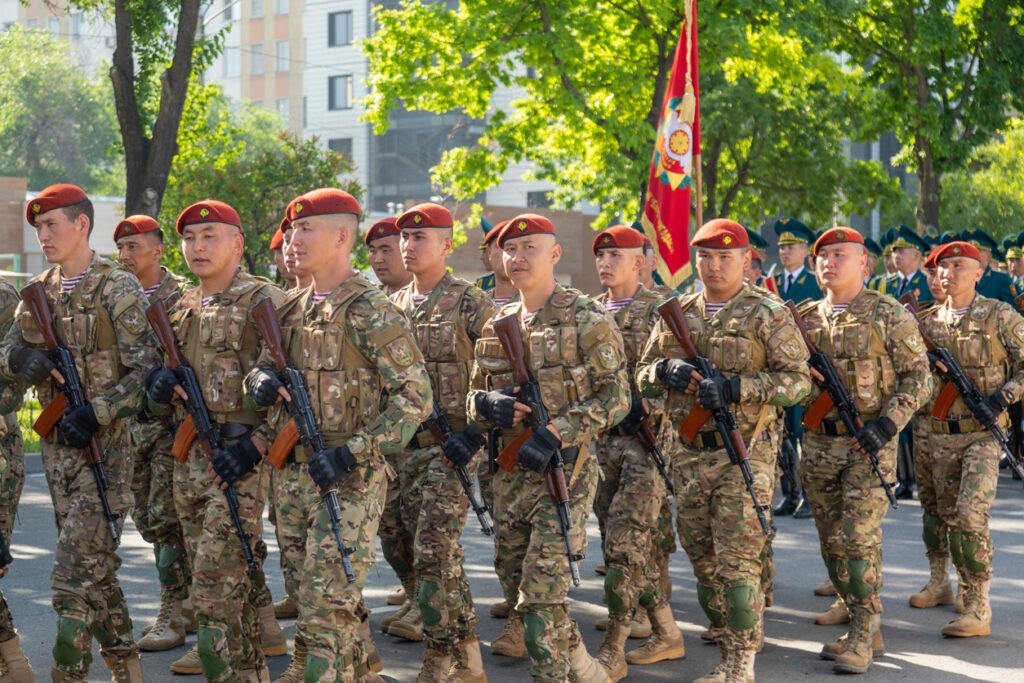BISHKEK (TCA) — Kyrgyzstan, especially its southern part in the Fergana Valley shared with Tajikistan and Uzbekistan, faces a potential threat of extremism and terrorism that may spill over into the country from neighboring Afghanistan. In this situation, it is a vital issue for Bishkek to strengthen its armed forces in the south of the country, including with Russia’s help and even military presence. We are republishing this article by Joshua Kucera on the issue, originally published by EurasiaNet.org:
Kyrgyzstan is against the expansion of the existing Russian airbase in the country, but is encouraging the Kremlin to build a separate military training base in the south of the country.
That’s according to Kyrgyzstan President Almazbek Atambayev, who said he discussed the matter with his Russian counterpart Vladimir Putin last week in Moscow.
“I told Vladimir Vladimirovich: ‘If you really want to think about security, then we are interested in starting construction of some sort of training facility in the south of the country.’ I think that would be a good option,” Atambayev told reporters in Bishkek on June 24.
Atambayev added that while he was in favor of modernizing the Kant air base, which Russia operates outside Bishkek, he was against sending additional forces there. “We have strongly objected when Russian authorities have suggested expanding the military base at Kant,” he said.
“What point is there to building it [Kant] up? Defend Bishkek from what? If we really think about the future, we need to think about the fact that we’re seeing more problems from Afghanistan,” he said. “If we’re going to defend, we need to look at the border of Kyrgyzstan and Tajikistan. That’s my position.”
It’s not quite clear from Atambayev’s telling how the topic came up in his June 20 meeting with Putin. And Putin spokesman Dmitriy Peskov declined to comment on Atambayev’s remarks.
Atambayev somewhat regularly criticizes Kant, but this appears to be a softening of his approach, as more often he says that the base’s time in the country should be limited. However, Russia has built up the base somewhat over the last several years and turned it into the air hub of Central Asia operations for the Collective Security Treaty Organization, a security bloc led by Russia and also including Armenia, Belarus, Kazakhstan, Kyrgyzstan, and Tajikistan.
The possibility of creating some sort of military or training base in southern Kyrgyzstan also has been kicking around for several years. Former president Roza Otunbayeva said in 2011 that there were plans to create both Russian and American bases in the region. Russian newspaper Nezavisimaya Gazeta reported in 2013 that the idea was still being discussed. But nothing has come of it. (It’s worth noting that, in the past, the main Kyrgyz interest in such a facility was as much as anything in its potential to act as a bulwark against aggression from Uzbekistan. And that threat seems to have diminished substantially since coming to power of new president Shavkat Mirziyoyev, who has tried to restore frayed ties with Uzbekistan’s neighbors.)
Atambayev alluded to that history, and suggested that the sticking point may be cost. “We need to take into account that for Russia this involves additional costs. We started this conversation five or six years ago with the Russian Ministry of Defense, but obviously it depends on money,” he said.
The idea has some support in Kyrgyzstan. “It would be an excellent idea, soldiers from the [Collective Security Treaty Organization, a Russian-led security bloc that also includes Kyrgyzstan] could train in high-altitude conditions, right on the border,” said Artur Medetbekov, a retired special forces major general, in an interview with Vesti.kg. “It would help the mobility of armed forces. There will soon be a meeting of the CSTO and it will likely be discussed there.”
Medetbekov said the focus should be on building up the capacity of Kyrgyzstan’s own armed forces rather than depending on Russian security. “Russian aviation equipment at Kant carries out reconnaissance in defense of the CSTO’s borders. The base is strong enough and there’s no need to strengthen it,” he said. “We need to think about our own armed forces. They also need to be able to face the threat. So a training center in the south of the country would be good for that.”









